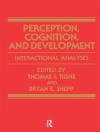The prevalence of substance abuse in the severely mentally ill ishigher than that in the general population, making this a seriousissue for clinicians. Integrated treatment, although the mostwidely adopted approach, is subject to tremendous variation in itsoperationalisation, especially throughout different parts of theworld.
Substance Misuse in Psychosis presents the latest internationaldevelopments and practical treatment interventions that can be usedwith co-morbid individuals and their families. Different social andcultural contexts are described and contrasted, along withtreatment approaches that have been tailored to address the needsof the severely mentally ill. A final section considers sub-groups, e.g. the young, the homeless, outlining the special issues thatneed to be considered when providing services for these groups.
Mục lục
About the Editors.
List of Contributors.
Preface.
Acknowledgements.
Part I: Social and Psychological Perspectives of Problem
Substance Use Among those with Psychosis.
Introduction (Max J. Birchwood).
Chapter 1: Substance Misuse in Psychosis: Contextual Issues
(Jenny Maslin).
Chapter 2: Temporal Order and Aetiology(Martin
Hambrecht and Heinz H¨afner).
Chapter 3: Substance Misuse and Psychosis in Context: The
Influences of Families and Social Networks (Alex
Copello).
Chapter 4: Sociological Aspects of Substance Misuse among People
with Severe Mental Illness (Martin J. Commander).
Chapter 5: A Cognitive Conceptualization of Concurrent Psychosis
and Problem Drug and Alcohol Use (Hermine L. Graham).
Part II: Integrated Service Delivery Models.
Introduction (Kim T. Mueser).
Chapter 6: Integrated Dual Disorder Treatment in New Hampshire
(USA) (Kim T. Mueser and Robert E. Drake).
Chapter 7: The Combined Psychosis and Substance Use (COMPASS)
Programme: An Integrated Shared-care Approach (Hermine L.
Graham, Alex Copello, Max J. Birchwood, Jenny Maslin, Dermot
Mc Govern, Jim Orford and George Georgiou).
Chapter 8: An Integrated Treatment Approach to Substance use in
an Early Psychosis Programme (Jean Addington).
Chapter 9: An Inpatient-Based Service Model(Richard N.
Rosenthal).
Part III: Treatments for Substance Misuse in
Psychosis.
Introduction (Alex Copello).
Chapter 10: Assessment Considerations (Douglas L. Noordsy,
Debra V. Mc Quade and Kim T. Mueser).
Chapter 11: Cognitive-Behavioural Integrated Treatment Approach
for Psychosis and Problem Substance Use (Hermine L. Graham, Alex
Copello, Max J. Birchwood, Jim Orford, Dermot Mc Govern, Jenny
Maslin and George Georgiou).
Chapter 12: Relapse Prevention for Patients with Bipolar and
Substance Use Disorders (Roger D. Weiss, Shelly F. Greenfield
and Grace Oâ??Leary).
Chapter 13: Family Intervention for Substance Misuse in
Psychosis (Christine Barrowclough).
Chapter 14: Start Over and Survive: A Brief Intervention for
Substance Misuse in Early Psychosis (David J. Kavanagh, Ross
Young, Angela White, John B. Saunders, Natalie Shockley, Jeff
Wallis and Anne Clair).
Chapter 15: Pharmacological Management of Substance Misuse in
Psychosis (Ed Day, George Georgiou and Ilana Crome).
Part IV: Special Populations.
Introduction (Hermine L. Graham).
Chapter 16: Cannabis and First-Episode Psychosis: The CAP
Project (Jane Edwards, Mark Hinton, Kathryn Elkins and Olympia
Athanasopoulos).
Chapter 17: Comorbid severe Mental Health Problems and Substance
Abuse in Forensic Populations (Alison Beck, Tom Burns and Tim
Hunt).
Chapter 18: Integrated Treatment Outcomes for Homeless Persons
with Severe Mental Illness and Co-Occurring Substance Use Disorders
(Susan A. Pickett-Schenk, Michael Banghart and Judith A.
Cook).
Chapter 19: Issues in Comorbidity and HIV/AIDS (Lisa
Razzano).
Part V: The Evolving Evidence Base.
Chapter 20: Cochrane Review of Treatment Outcome Studies and its
Implications for Future Developments (Ann Ley and David
Jeffery).
Epilogue: Future Directions.
Concluding Remarks (Hermine L. Graham, Alex Copello, Max J.
Birchwood and Kim T. Mueser).
Index.












